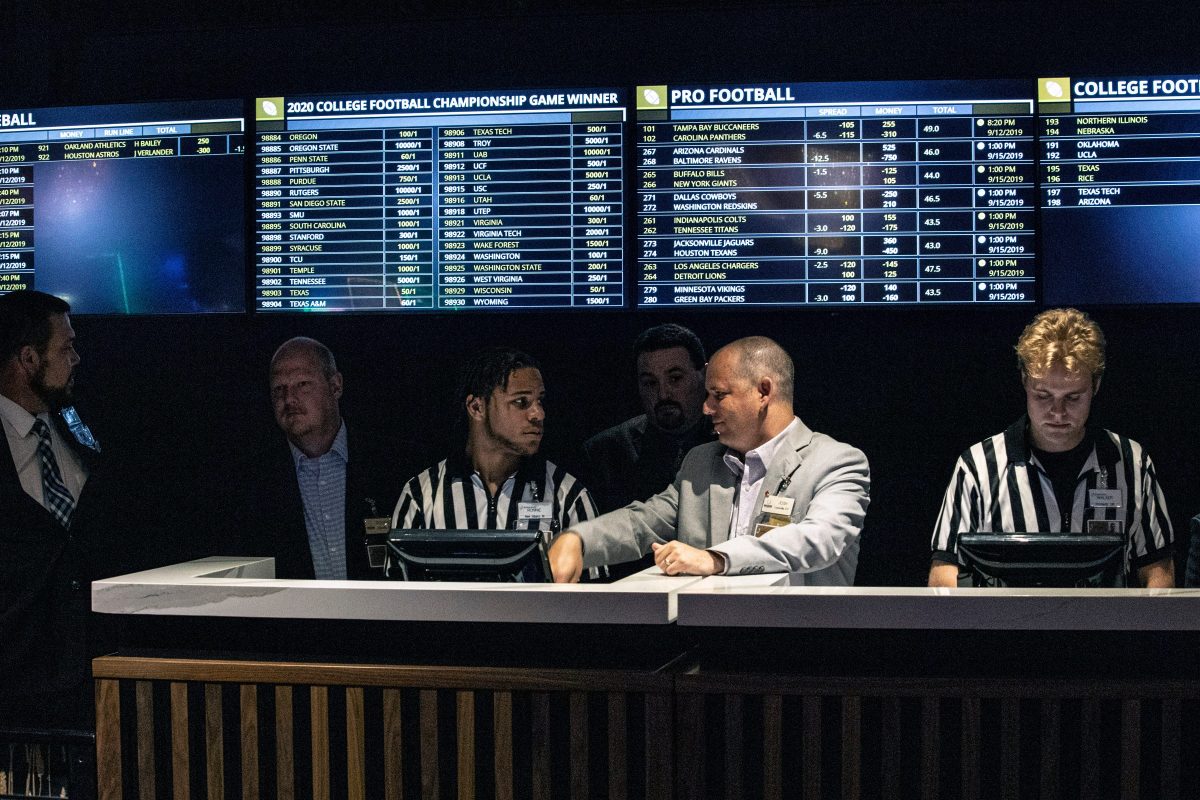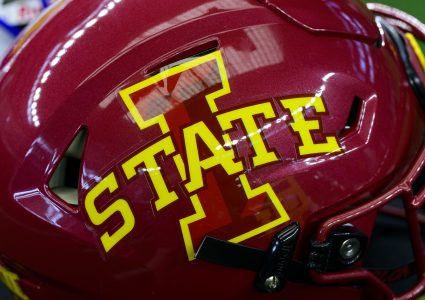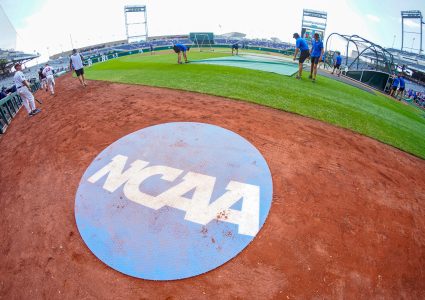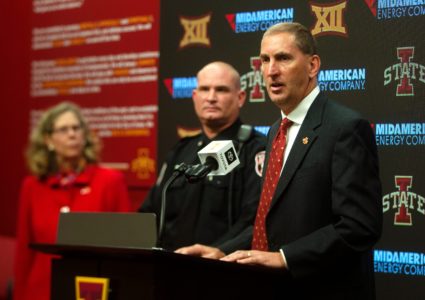NFL Hall of Famer Paul Hornung was on hand to place the first bet at the new sports book service at Horseshoe Casino. He placed a bet on the New Orleans Saints to win the Super Bowl. Sept. 12, 2019
What a Monday afternoon news drop.
Hours after the Iowa Gaming Commission acknowledged it had opened an investigation into the Iowa baseball program for sports wagering activity, Iowa State acknowledged allegations of its own involving three of its athletic programs.
“Iowa State University and its Department of Intercollegiate Athletics is aware of online sports wagering allegations involving approximately 15 of our active student-athletes from the sports of football, wrestling and track & field in violation of NCAA rules,” an Iowa State release said. “The university has notified the NCAA and will take the appropriate actions to resolve these issues.”
Iowa has since acknowledged allegations of sports wagering activity by 26 student-athletes in five sports.
Now, before we let this turn into a bigger story than it could end up being, let’s lay out some ground information.
Student-athletes wagering on any sport with an NCAA-sponsored championship is against NCAA rules. It doesn’t matter if you’re a football player or a wrestler, you’re not allowed to even bet on The Masters, because the NCAA holds a sanctioned golf championship.
Make sense?
Just because these athletes come from football, wrestling and track and field does not directly matter to their circumstances. These approximately 15 individuals could have been betting on anything, and there are checks in place now that are capable of weeding those things out, as we learned again just last week after the Alabama baseball coach was fired for sports gambling-related issues.
I wanted to get that information out of the way before anyone started to think there was some sort of grand conspiracy going on regarding Iowa State athletics. There is no indication of points shaving or really anything nefarious at all.
Student-athletes were placing bets on sports like millions of people do across this country each day. The difference is these individuals are not allowed to do that while active student-athletes.
The facts are simple… the system is good at catching the people who are doing what they’re not supposed to.
How do we know this to be true? The Alabama coaching situation is exhibit one. The fact the NFL suspended five players for violating their sports gambling rules last month is exhibit two. Today’s information regarding both Iowa State and Iowa are exhibit three.
If you’re betting on sports, and you’re not supposed to be, you’re probably going to be caught.
What happens next will be interesting to track. We might not even get true clarity until the fall once football has to lace up the cleats against Northern Iowa and we’re forced to guess who might be on an NCAA suspension for gambling-related activity.
The NCAA is going to have an interesting situation on its hands with sports gambling being easier than ever and becoming even more present in our current sports landscape.
Will they eventually amend their rules, or will they continue to evaluate every one of these instances on a case-by-case basis?
Things like this are only going to be more common, and you can bet the schools will be doing more to educate their athletes on the dangers of betting on sports in their positions.
Clearly, that education had not been effective enough in at least 15 cases, and now we’re going to find out what the NCAA wants to do about it.





